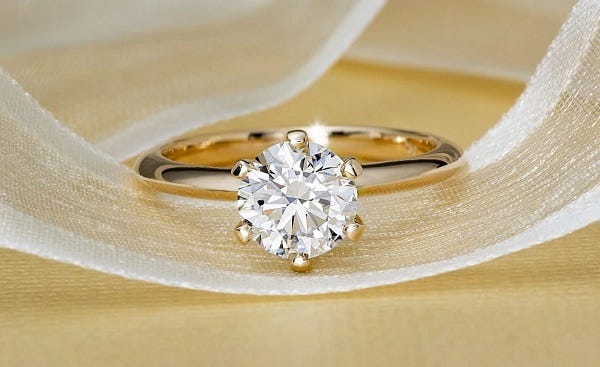The allure of diamonds has captivated humanity for centuries, symbolizing not only beauty and wealth but also love and commitment. In recent years, however, ethical considerations have increasingly influenced consumer choices, leading to a growing demand for ethical diamonds. These are diamonds that have been sourced, processed, and traded in ways that ensure environmental sustainability, social responsibility, and economic fairness. This article delves into the comprehensive aspects of ethical diamonds, exploring their origins, benefits, and the future they promise for the luxury market.
Table of Contents
Understanding Ethical Diamonds
Ethical diamonds are primarily defined by their adherence to stringent standards that minimize harm and maximize benefits at every stage of their lifecycle. These standards typically encompass:
Conflict-Free Certification: Ensuring diamonds do not fund armed conflict.
Fair Labor Practices: Protecting the rights and safety of workers.
Environmental Stewardship: Reducing environmental impact during mining and processing.
Community Development: Contributing to the socioeconomic growth of mining communities.
The Importance of Conflict-Free Diamonds
One of the most critical aspects of ethical diamonds is their conflict-free status. Conflict diamonds, also known as blood diamonds, are mined in war zones and sold to finance armed conflict against governments. This trade has historically led to severe human rights abuses, including forced labor and child exploitation.
The Kimberley Process Certification Scheme (KPCS) was established in 2003 to prevent conflict diamonds from entering the mainstream market. However, ethical diamonds go beyond just being conflict-free. They are often sourced from mines that adhere to the highest ethical standards, ensuring that every diamond supports peaceful and prosperous communities.
Fair Labor Practices in Diamond Mining
The diamond industry has been marred by stories of unsafe working conditions, unfair wages, and exploitation. Ethical diamonds are sourced from mines that prioritize the well-being of their workers. This includes:
Safe Working Conditions: Ensuring mines are safe and workers are provided with the necessary protective gear.
Fair Wages: Paying workers a living wage that supports their families and communities.
No Child Labor: Adhering to strict regulations that prohibit the employment of children in mines.
Environmental Stewardship in Diamond Mining
Mining activities can have devastating impacts on the environment, including deforestation, soil erosion, and water pollution. Ethical diamond producers strive to minimize these impacts through:
Sustainable Mining Practices: Implementing techniques that reduce environmental degradation.
Rehabilitation of Mined Areas: Restoring ecosystems once mining activities have ceased.
Reduction of Carbon Footprint: Utilizing energy-efficient technologies and renewable energy sources.
The Role of Lab-Grown Diamonds
Lab-grown diamonds, also known as synthetic diamonds, are a significant advancement in the ethical diamond market. These diamonds are created in controlled laboratory environments using cutting-edge technology that replicates the natural diamond-growing process. They offer several ethical benefits:
Environmental Impact: Lab-grown diamonds have a substantially lower environmental footprint compared to mined diamonds.
Conflict-Free Guarantee: As they are not mined, they are inherently conflict-free.
Cost-Effectiveness: Generally more affordable than natural diamonds, making ethical choices accessible to a broader audience.
Certification and Transparency
Transparency is crucial in verifying the ethical origins of diamonds. Reputable certification bodies such as the Responsible Jewellery Council (RJC) and the International Gemological Institute (IGI) provide third-party verification of a diamond’s ethical status. These certifications ensure:
Traceability: The ability to trace a diamond back to its source.
Compliance with Ethical Standards: Verification that the diamond has been sourced and processed ethically.
Consumer Confidence: Providing assurance to consumers that their purchase supports ethical practices.
Impact on Local Communities
Ethical diamond mining can have a transformative effect on local communities. By adhering to fair labor practices and investing in community development, ethical diamond companies can:
Boost Local Economies: Providing jobs and fair wages that stimulate economic growth.
Improve Education and Health Services: Investing in schools, hospitals, and other essential services.
Empower Women: Offering employment opportunities and supporting gender equality initiatives.
The Future of Ethical Diamonds
The demand for ethical lab diamonds is set to grow as consumers become more aware of the social and environmental impacts of their purchases. This trend is influencing the entire diamond industry, pushing for higher standards and greater accountability. Innovations in technology and increasing transparency will likely play pivotal roles in shaping the future of ethical diamonds.
Technological Innovations
Advancements in blockchain technology are being leveraged to enhance the traceability of diamonds. Blockchain can provide an immutable record of a diamond’s journey from mine to market, ensuring every step meets ethical standards.
Increased Consumer Awareness
Education campaigns and advocacy by non-profits and industry leaders are crucial in raising awareness about the importance of ethical diamonds. As more consumers demand transparency and ethical sourcing, companies will be incentivized to adopt and promote sustainable practices.
Industry-Wide Adoption of Best Practices
To truly transform the diamond industry, widespread adoption of ethical practices is necessary. This includes not only miners and producers but also retailers and consumers. Collaborative efforts can drive significant progress towards a more sustainable and equitable industry.
Conclusion
Ethical diamonds represent a paradigm shift in the luxury market, where beauty and conscience coexist. By choosing ethical diamonds, consumers can enjoy the timeless elegance of these gems while supporting practices that respect human rights, protect the environment, and uplift communities. As we look to the future, the commitment to ethical standards in diamond production will not only redefine luxury but also foster a more just and sustainable world.





